Welcome to Matrix Education
To ensure we are showing you the most relevant content, please select your location below.
Select a year to see courses
Learn online or on-campus during the term or school holidays
Learn online or on-campus during the term or school holidays
Learn online or on-campus during the term or school holidays
Learn online or on-campus during the term or school holidays
Learn online or on-campus during the term or school holidays
Learn online or on-campus during the term or school holidays
Learn online or on-campus during the term or school holidays
Get HSC Trial exam ready in just a week
Get HSC exam ready in just a week
Select a year to see available courses
Science guides to help you get ahead
Science guides to help you get ahead
Do you struggle studying effectively? Have you found the study method that's right for you? In this article, Jessy shares how she found the right study habits to own her HSC.

Join 75,893 students who already have a head start.
"*" indicates required fields
You might also like

Join 8000+ students each term who already have a head start on their school academic journey.
In this article, Meriden School Student Jessica Wang shares how she found the right study habits to own the HSC.
Name:
Jessica Wang
School:
Meriden School
Goal:
UNSW Medical Studies / Doctor of Medicine
At the beginning of the year, I found it really difficult to manage my time and ended up struggling to stay on top of tasks, especially due to the increased workload from Year 11 to Year 12.
This pressure decreased when I managed to prioritise my subjects.
Everyone will personally have subjects they find easier and others harder, and figuring this out is key to organising time. I dedicated more time/effort to subjects I found trickier (Maths and English) and less to Science, allowing me to fix up any major issues I had.
By the end of the year, I had developed a really efficient routine that made it much easier to stick to a schedule!
During study periods, I completed more difficult tasks because I was in a better mindset in the middle of a school day, where I was already switched on.
After school, I would stay at the school library if I didn’t have other sporting or tutoring commitments. Here, I finished the rest of my school work and studied, so that I had drastically reduced my workload before going home.
I also coped with stress by actively preventing myself from feeling anxious.
By having a balanced routine, I managed my workload well and thus felt generally prepared for each assessment and wouldn’t stress.
The lead up to Trials was difficult and I dealt with this by talking to others. Having a strong support network is essential in getting through the HSC.
My biggest problem was finding a study method that worked for me, something that allowed me to work out large problem areas and prevented me from making silly mistakes in exams.
I overcame this through trial and error, figuring out a balance of techniques that worked:
Usually, I took rough notes in class on my laptop because it was the easiest way for me to organise everything – my notes were easy to read and all lived in one place. After taking the corresponding Matrix lesson, I would write detailed notes by hand, referring to my rough in-class notes, Matrix workbooks, and relevant textbooks.
I found the hand-writing process beneficial to consolidating the content and allowed me to produce a set of notes that had all the information I needed. I used binders and loose-leaf paper for notes, exercise books for homework.
Once I had generally learnt all the content, I moved on to applying that through past papers. There are heaps online available to download, and I did the relevant ones for each exam.
For the HSC, I made a checklist to keep track of which ones I’d finished/needed to mark. I highlighted any long response questions that I couldn’t mark (lack of marking guidelines) and gave to my teacher for feedback.
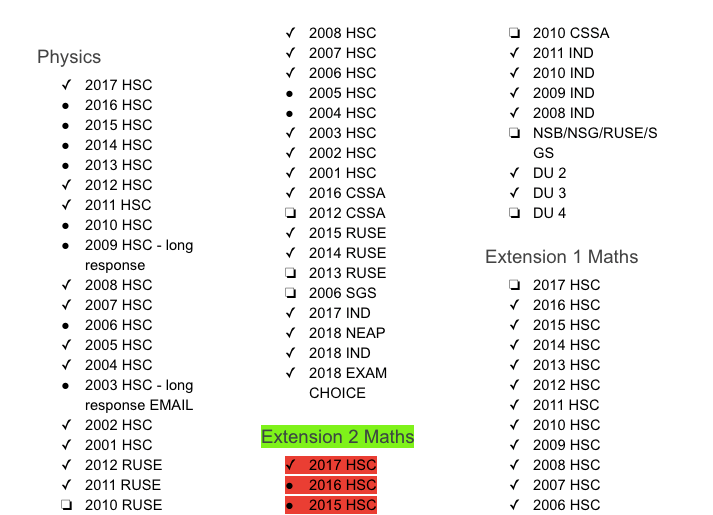
I made Google docs for each subject at the beginning of the year to document any mistakes I was making.
After each past paper, I noted important details I was getting wrong and inserted exemplar sample answers that I could learn. This helped to minimise the number of silly mistakes made and provided good material for me to revise before an exam as I didn’t have to go through heaps of papers.
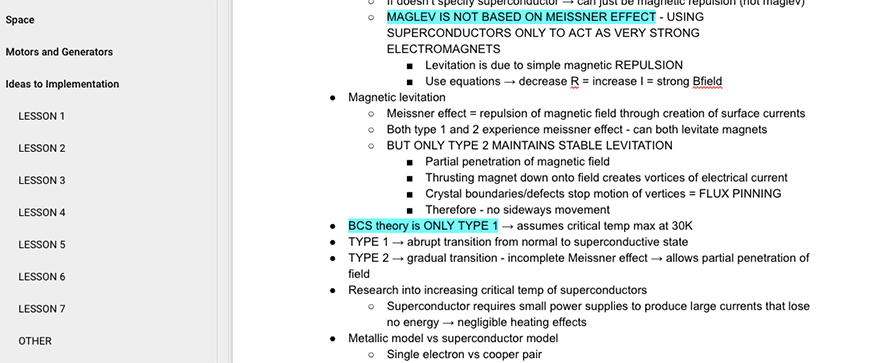
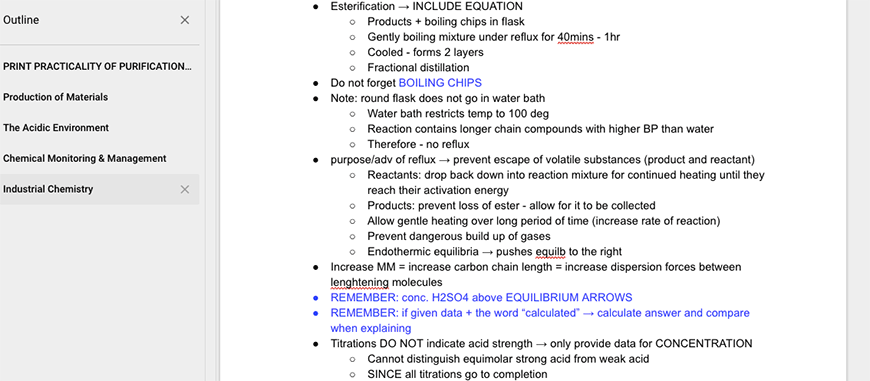
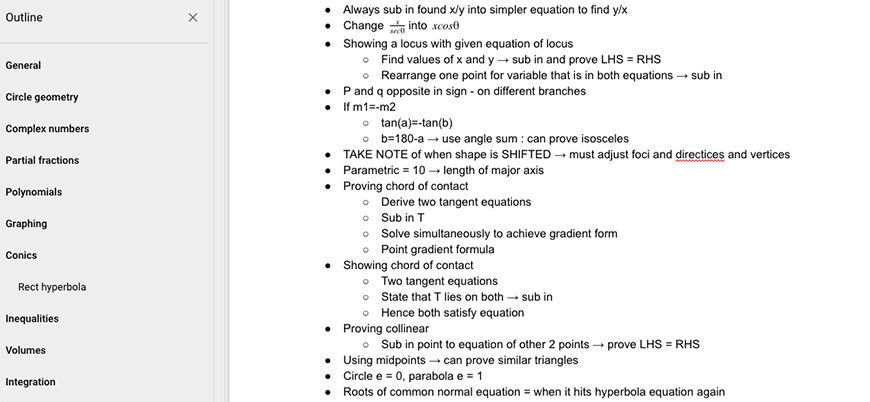
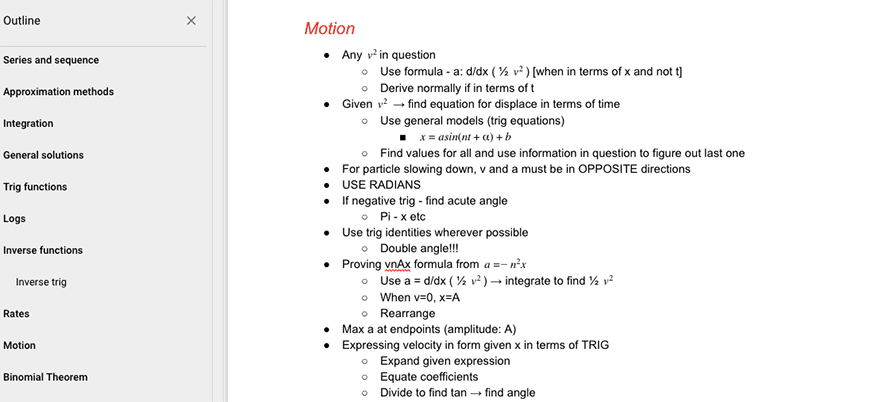
I took a holiday Chemistry course and a term Physics course. Spreading my lessons out gave me a lot more time to focus on other subjects and meant that I didn’t feel exhausted by the end of the week.
Start HSC Chemistry confidently
Expert teachers, comprehensive resources, one-to-one help! Learn from home with Matrix+ Online.
Also, school taught Physics quite slowly, so my term Matrix lessons still managed to stay ahead. However, I still took the term class for Physics because I felt like I would get less out of doing two holiday courses in one break due to the amount of hours/work needed. The holiday course allowed me to complete all my notes before term started, decreasing my workload and meant that school classes were simply revision lessons.
This structure worked well for me and I’d recommend it to students who are taking two classes.
I used flash cards to aid my study, writing very brief notes on concepts to consolidate what I knew. This was useful as a refresher right before an exam, or for memorising dot point facts. I wouldn’t use this to learn any detailed content.
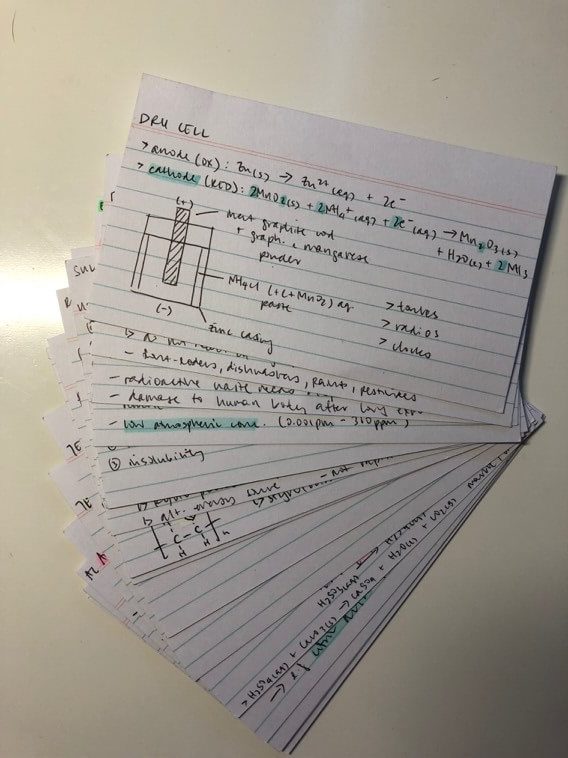
For English, I used mnemonics to memorise quotes (especially Mod B) and recited my essays out loud to learn them. This was really effective for me and I managed to memorise full essays for each module/AOS.
Note-taking really worked for me at the beginning of the year, however, it became a bit useless approaching HSC exams. With hindsight, I probably wouldn’t spend as much time writing detailed notes, rather applying what I remembered through past papers.
The act of hand-writing information helped me to retain most of the content, so it was useful for term exams.
However, I forgot a lot of it by Trials and I wasn’t motivated to read the notes I’d written. I’d recommend obtaining a set of quality pre-written notes (downloaded online, given by a friend etc) and just adding extra notations. This is especially useful for the option topics because it’s mainly just rote learning.
1. Figure out a routine that works for you – plan out your day, detailing each task you have to do. Establish this earlier on in the year and stick to it.
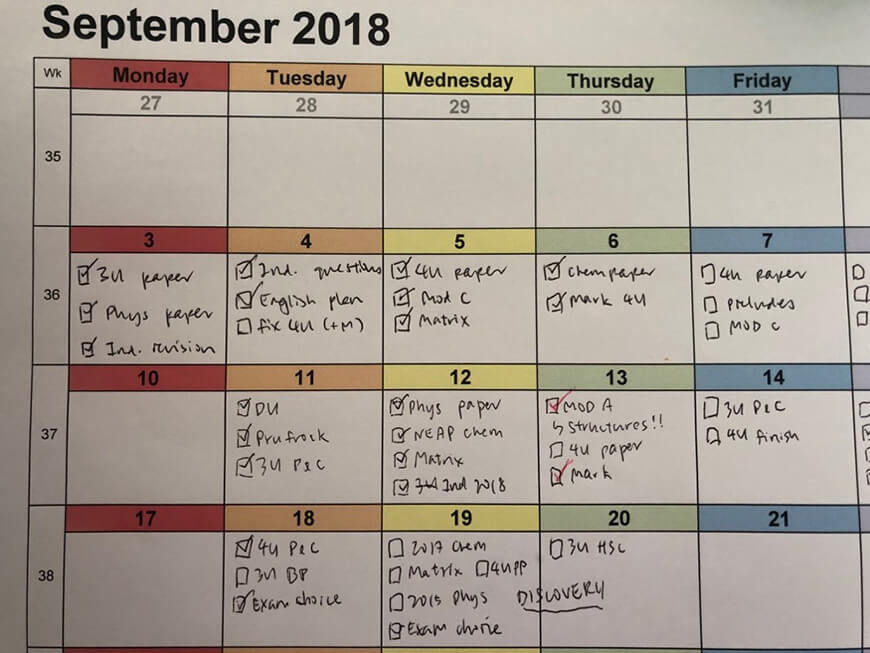
2. Do past papers – especially over reading notes. At first, do complete papers from early years and use these to work out your weak areas. Focus on these areas through study/more questions. In the lead up to an exam, do papers under timed conditions.
3. Practice handwriting. I had horrific handwriting that was largely illegible and this affected my exam marks. Practice writing neatly earlier on, making sure each letter/number is complete and distinct. Invest in a good pen (I used a Uni Jetstream 101).
1. Cut out all of your extra-curricular activities – definitely prioritise what’s most important to you but ensure that all of your time isn’t spent studying. This is important for your general wellbeing and for future interviews/other opportunities.
2. Do every single question – once you do enough papers, it’s obvious that many questions are repeated/very similar. Make sure you develop a strong answer for these but refrain from doing them over and over again because it’s a waste of time. Spend the time/effort exposing yourself to a wider variety of different questions by choosing specific unfamiliar ones to answer.
3. Disregard feedback. Ask for help – especially for subjects like English. Email any long responses/essays to teachers to get feedback and make sure to take their response on board in your next attempt!
Written by Guest Author
We have regular contributions to our blog from our Tutor Team and high performing Matrix Students. Come back regularly for these guest posts to learn their study hacks and insights!© Matrix Education and www.matrix.edu.au, 2025. Unauthorised use and/or duplication of this material without express and written permission from this site’s author and/or owner is strictly prohibited. Excerpts and links may be used, provided that full and clear credit is given to Matrix Education and www.matrix.edu.au with appropriate and specific direction to the original content.